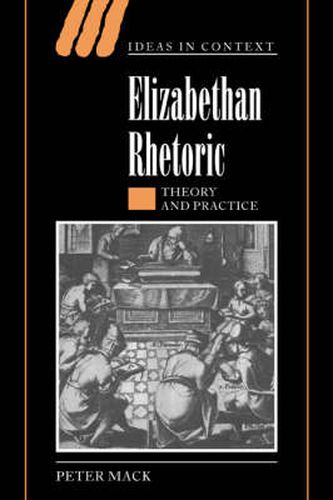Readings Newsletter
Become a Readings Member to make your shopping experience even easier.
Sign in or sign up for free!
You’re not far away from qualifying for FREE standard shipping within Australia
You’ve qualified for FREE standard shipping within Australia
The cart is loading…






Peter Mack examines the impact of humanist training in rhetoric and argument on a range of Elizabethan prose texts, including political orations, histories, romances, conduct manuals, privy council debates and personal letters. Elizabethan Rhetoric reconstructs the knowledge, skills and approaches which an Elizabethan would have acquired in order to participate in the political and religious debates of the time: the approaches to an audience, analysis and replication of textual structures, organisation of arguments and tactics for disputation. Study of the rhetorical codes and conventions in terms of which debates were conducted is currently a major area of historical and literary enquiry, and Mack provides a wealth of new information about what was taught and how these conventions were exploited in personal memoranda, court depositions, sermons and political and religious pamphlets. This important book will be invaluable for all those interested in the culture, literature and political history of the period.
$9.00 standard shipping within Australia
FREE standard shipping within Australia for orders over $100.00
Express & International shipping calculated at checkout
Peter Mack examines the impact of humanist training in rhetoric and argument on a range of Elizabethan prose texts, including political orations, histories, romances, conduct manuals, privy council debates and personal letters. Elizabethan Rhetoric reconstructs the knowledge, skills and approaches which an Elizabethan would have acquired in order to participate in the political and religious debates of the time: the approaches to an audience, analysis and replication of textual structures, organisation of arguments and tactics for disputation. Study of the rhetorical codes and conventions in terms of which debates were conducted is currently a major area of historical and literary enquiry, and Mack provides a wealth of new information about what was taught and how these conventions were exploited in personal memoranda, court depositions, sermons and political and religious pamphlets. This important book will be invaluable for all those interested in the culture, literature and political history of the period.